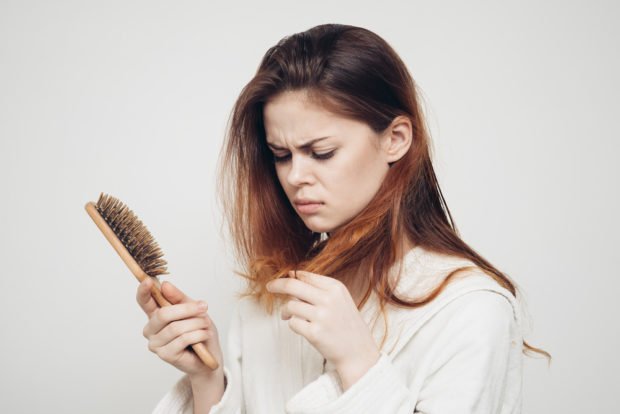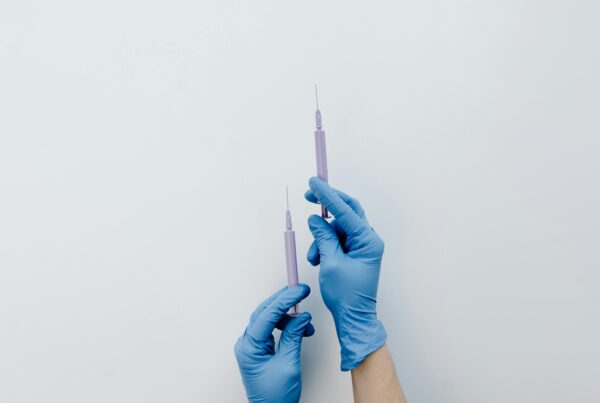Hair loss can be a scary thing. While it’s normal for some hair to fall out daily—around 50 -100 strands—it’s still hard to pinpoint the cause when suddenly losing more than usual. The first step is understanding what’s happening with your hair. This article highlights the most common reasons people suddenly lose a lot of hair. Longevity Live Paid Content.
Hormonal Imbalance
Hormones are crucial in controlling the hair-growth cycle. Estrogens (female hormones) are hair-friendly and aid in keeping hair in its development phase for the appropriate duration. However, androgens (male hormones) abbreviate the hair development cycle.
Hair loss can be due to an endocrine illness like Polycystic Ovarian Syndrome (PCOS), which causes an overproduction of androgens. A hormonal imbalance might have a more pronounced effect on your hair if you have a hereditary tendency to follicular sensitivity.

Nina Buday/Shutterstock
Stress
Stress is one of the most common reasons for sudden hair loss. When under pressure, your body sends out the hormone cortisol, which can cause your hair to fall out. Stress can also cause your hair to thin over time, so even if you don’t notice any bald patches right away, they may become noticeable as time goes on.
If you’re noticing a lot of hair loss, talk with your doctor about how to manage stress. They may recommend meditation or other relaxation techniques that can help reduce cortisol levels and slow down hair loss.
Lack of Nutrients
You’re probably not getting enough nutrients from your diet. Hair loss can be caused by a lack of vitamins A and B12, iron, zinc, and magnesium. These nutrients are vital for healthy hair growth and preventing premature hair loss.
If you suspect you don’t have enough of these nutrients in your body, talk to your doctor or nutritionist, so they can help you get the right amount of each one through a diet plan or supplements.
Overdoing Your Hair Routine
If you’ve noticed more hair in your brush or pillow, it might be time to reevaluate your hair care routine. Overexposure to heat, and certain chemicals can all contribute to hair loss. If you’re constantly washing and styling your hair or using harsh chemical treatments like straightening or coloring, that can cause hair fall-out. In other words, don’t do anything drastic to your hair unless you have to!
Understand that each person will react differently to a product. Just because something is labeled, “organic” doesn’t mean it’s good for you. Contrarily, don’t assume that everything with the words “chemical-based” attached is harmful to your health. Just look at ingredient labels carefully and pay attention to what they say they do before purchasing any product that touches your body.
 Medications
Medications
Hair loss is a common adverse effect of several drugs. Medications in this category may include:
- Antidepressants
- Beta-blockers
- Cholesterol-lowering drugs
- Blood thinners
- Chemotherapy
While it’s not always the case that you’ll lose hair when taking these medications, it is worth noting that hair loss can be an early warning sign of other serious health issues.
If you have been recently diagnosed with a medical condition such as cancer or hypertension and are prescribed one of these medications for treatment, consult your doctor about how it may affect your body and overall health.
Alopecia Areata
Alopecia areata is an autoimmune disorder that results in abrupt hair loss. You may see clumps of hair falling out from your head, eyebrows, and eyelashes. It is recommended that anybody experiencing these symptoms consult a medical professional. The physician may recommend medication for hair loss to stimulate hair growth.
Bottom Line
Don’t freak out if you notice drastic hair loss. Just look at our list of common causes of hair loss and see if any of them apply to you. If it’s still unclear what’s going on with your hair, it might be worth making an appointment with your doctor. They can help assess the situation and make recommendations for treatment if necessary.
Who is the author?

Katherine Hallow
Katherine Hallow is a medical journalist, who wrote countless articles, guidelines, and news covering the healthcare system, the opioid crisis, advancements in the medical field, and more. In the past years, she focused on the research and developments surrounding medical marijuana, tackling the subject from multiple perspectives, including legislation, certifications, patients’ rights, etc. Katherine wants to educate and inspire healthcare professionals and people in finding alternative health solutions.



 Medications
Medications

![women [longevity live]](https://longevitylive.com/wp-content/uploads/2020/01/photo-of-women-walking-down-the-street-1116984-100x100.jpg)










